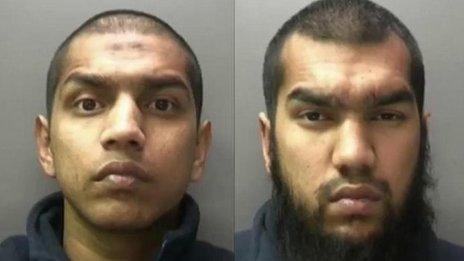Cardiff terrorist Omar Latif sues MoJ over licence changes
- Published
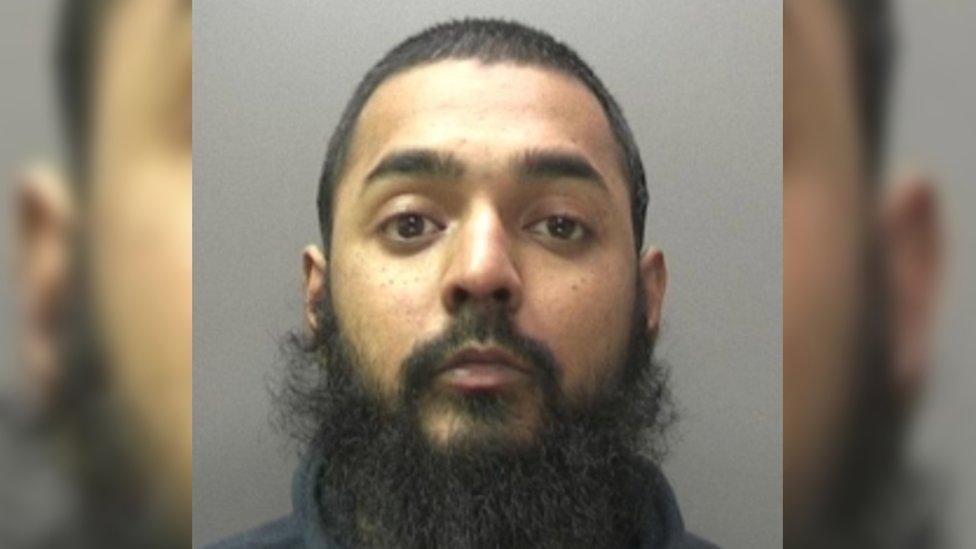
Omar Latif, from Cardiff, was one of nine men jailed in 2012 for plotting to bomb the London Stock Exchange
A convicted terrorist who was jailed for his role in an al Qaida-inspired terrorist group is suing the Ministry of Justice (MoJ).
Omar Latif, from Cardiff, was one of nine men jailed in 2012 for plotting to bomb the London Stock Exchange. He was released in 2016.
The MoJ imposed new conditions on Latif's licence after Usman Khan's murderous London Bridge attack while on licence following his early release.
Latif claimed the MoJ acted unlawfully.
The MoJ is defending itself against Latif's claim and argues the additional licence conditions imposed on him are lawful.
The nine men jailed in 2012, which included Khan, had also tried to raise funds to build a terrorist training camp in Pakistan and recruit British people to attend.
Latif, now 36, was 28 when he was jailed for 10 years and four months for attending meetings with the intention of assisting others to prepare or commit acts of terrorism.
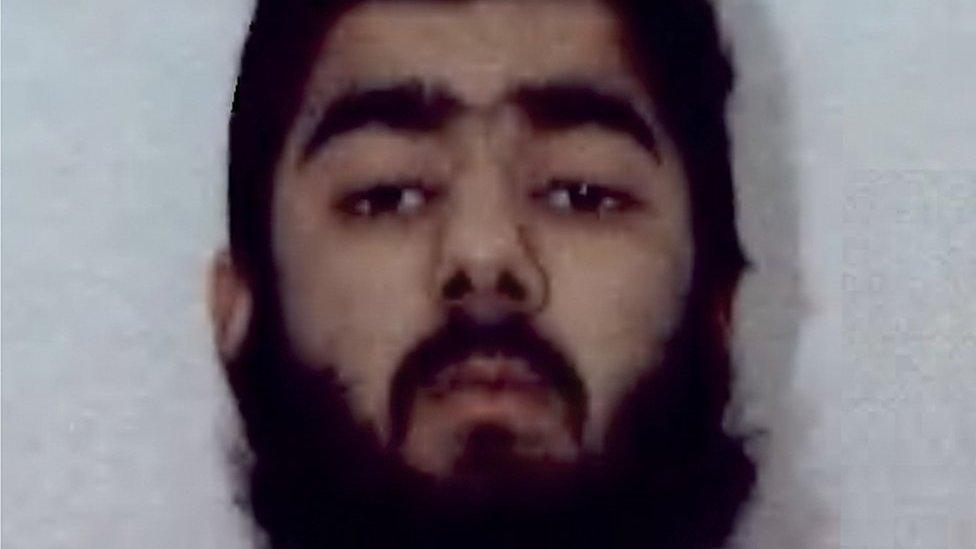
Usman Khan, who was one of those jailed alongside Latif in 2012, went on to murder two people in the London Bridge terror attack
Latif was automatically released from prison halfway through his sentence in February 2016, but was recalled to prison the following September over allegations he tampered with his electronic monitoring tag.
Latif, who said the damage to his tag most likely occurred when he was playing football, was again released on licence in May 2018 on terms set by the Parole Board.
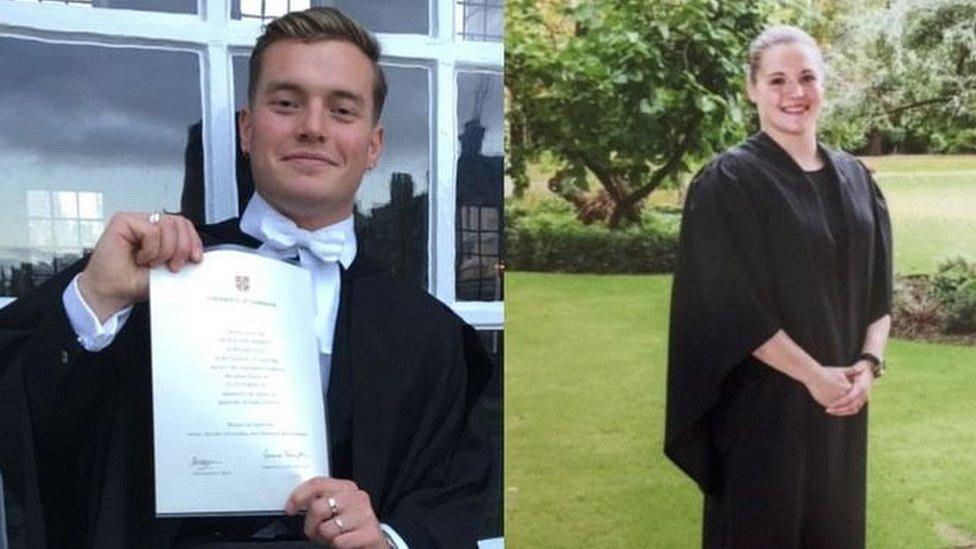
Jack Merritt and Saskia Jones were killed during a conference to rehabilitate offenders
On 29 November 2019, Khan fatally stabbed Jack Merritt, 25, and Saskia Jones, 23, during a prisoner rehabilitation event at Fishmongers' Hall, near London Bridge, in central London while out on licence.
Khan had been released from jail on licence in 2018, halfway through a 16-year sentence for terrorism offences.
Five days later, Latif, who maintains he had "no contact" with Khan since they were in the same prison in 2016, was told that "senior officials" at the MoJ had imposed new conditions on his licence.
His lawyers say the additional conditions, which prevent him from attending "any meetings or gatherings of more than 50 people", or entering the City of London without prior permission, are unlawful.
At a High Court hearing on Wednesday, Dan Squires QC said Justice Secretary Robert Buckland appeared to have "personally" requested additional licence conditions for all terrorist offenders following the London Bridge attack.
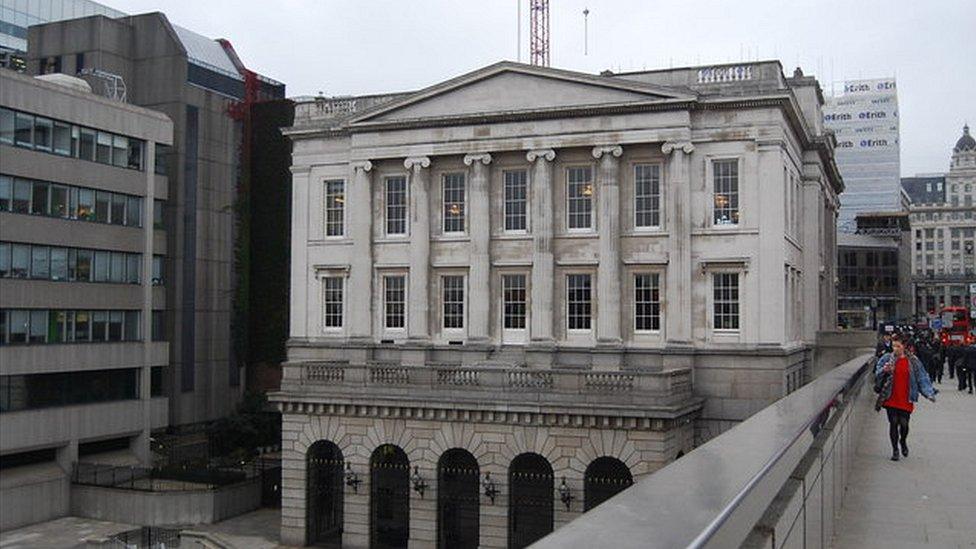
Fishmongers Hall, below London Bridge, which is where Khan murdered Mr Merritt and Ms Jones
Mr Squires argued the MoJ "has no power unilaterally to add to or vary conditions on [Latif's] licence without the approval of the Parole Board," meaning the new conditions were unlawful.
Latif "had no involvement in, or prior knowledge of, the London Bridge attack" and was "horrified to hear of the attack and the role of Khan in it", Mr Squires said.
The hearing before the Lord Chief Justice Lord Burnett and Mr Justice Swift is expected to conclude on Thursday morning.
- Published3 February 2020
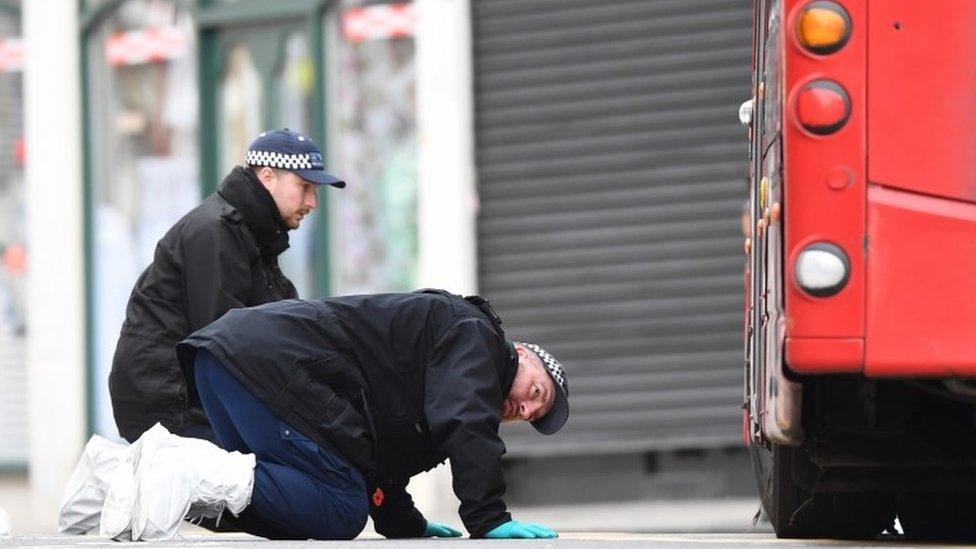
- Published1 February 2012
